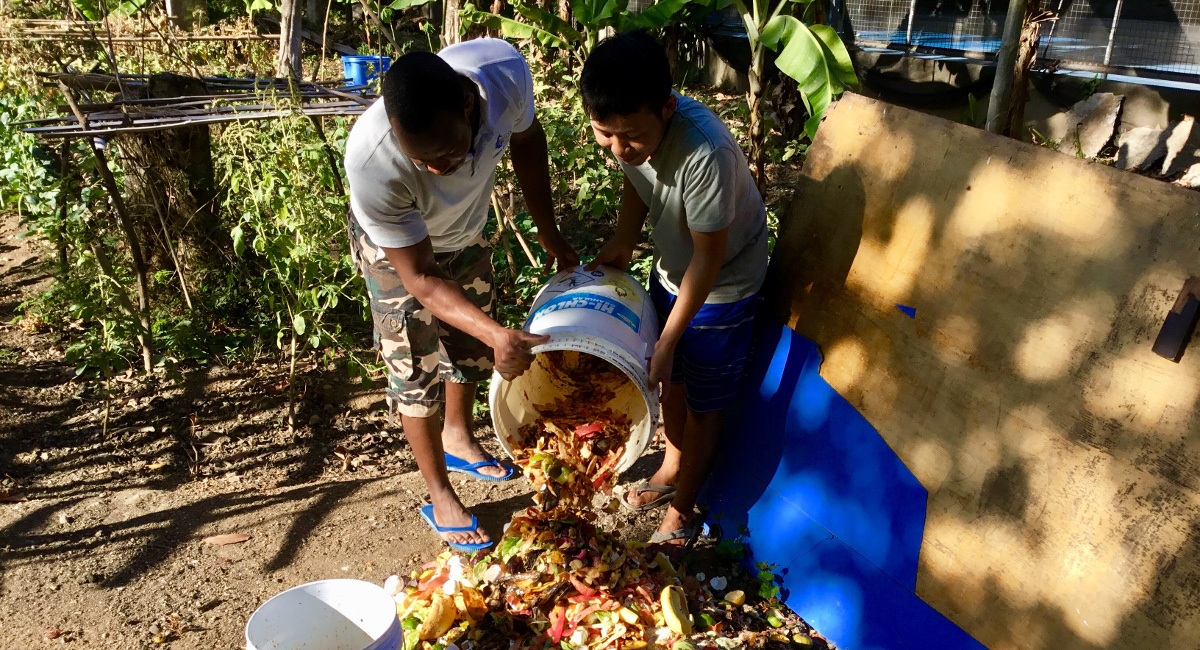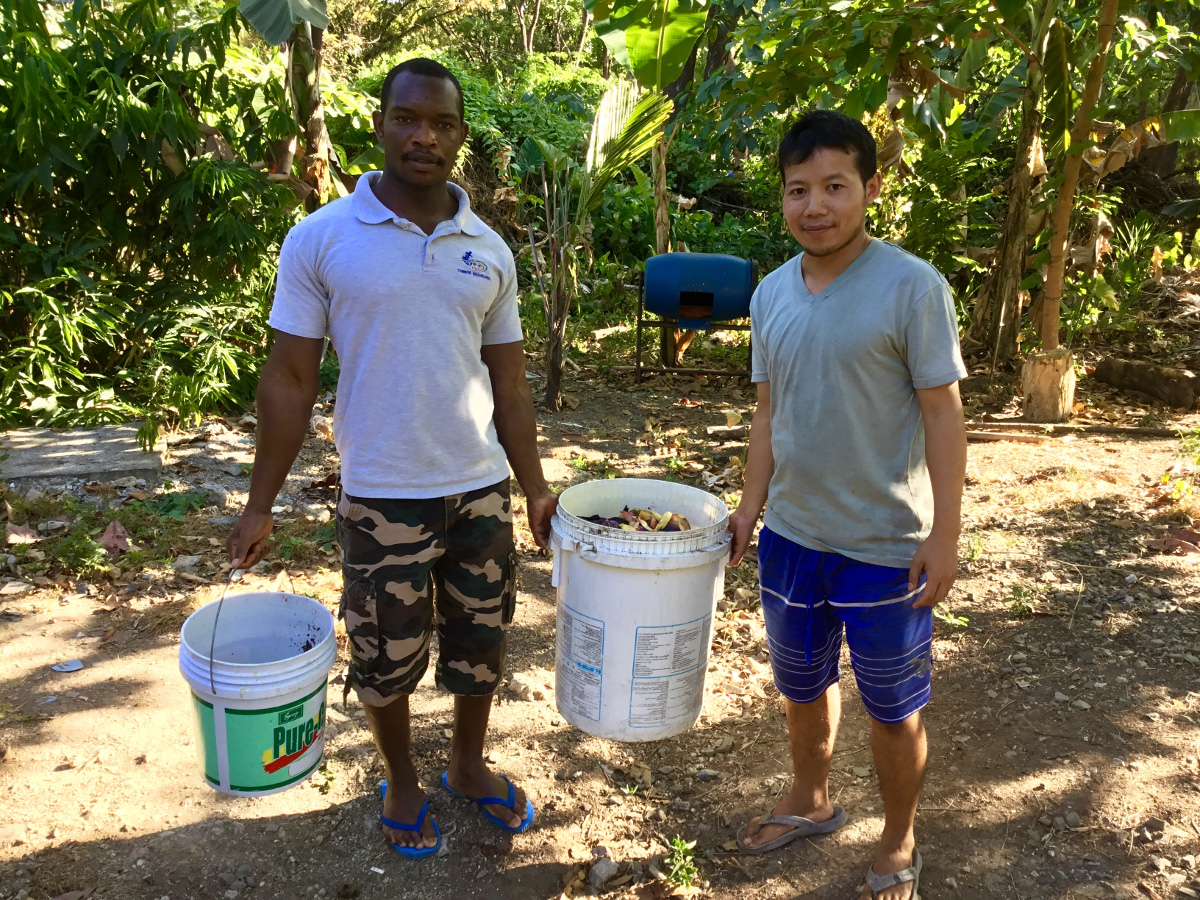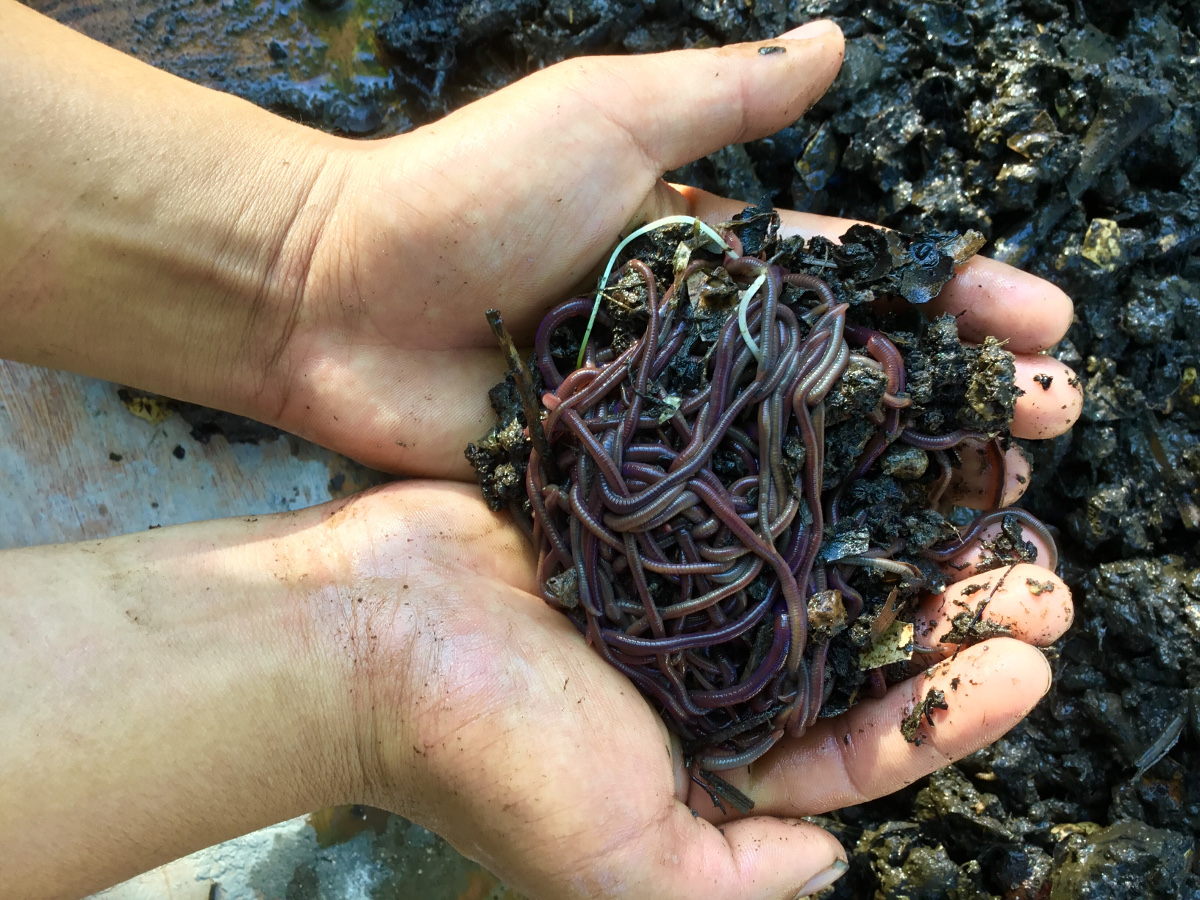
A big portion of the community is dominated by scholastics and brothers from chopstick and sarung countries where vegetable consumption is more common and preferential than consuming meat. As a matter of fact, the community produces a good amount of organic scraps suitable for composting. About 15 to 20 kilos of vegetable and fruit peels are produced daily from the preparation of refreshments and meals.

Compost seniors Scholastic Thomas Machuki Ondieki from Uganda and Br Stephen Jowin Bwa Ei from Myanmar
Composting is part of the community’s commitment to the environment, and one brother and two scholastics are assigned as compost seniors to monitor garbage segregation and composting.
Vegetable scraps and fruit peels are segregated in two main areas: in the kitchen and dining room. Usually, the kitchen supplies most of the vegetable scraps while the dining room supplies a good amount of peels from a variety of fruits in season. In the late afternoons, when preparation for cooking is done for the day, the vegetable and fruit scraps are collected and thrown into the compost pit located behind the Francis Corner – about forty steps from the kitchen. After two to three days, the scraps turn dark brown as bugs and worms find their way to the composting pile and start breaking down the biodegradable compounds in the upper layer. Underneath the compost pit, red earthworms play an important role of further breaking down organic materials into finer pieces, resulting in soft and grainy dark soil after a few weeks.
High temperatures can kill off the helpful microorganisms. So keeping the temperature low by providing the compost pit with good shade and moisture is crucial for the earthworms to remain healthy, happy and active. Turning over the compost pile provides good ventilation and additional oxygen for the microorganism to thrive. Sprinkling some water on top of the pit also helps keep it moist.
From the previous compost harvest, the whole process of making compost – from adding kitchen compostables into the pit to harvesting the compost – takes anywhere from four to five months. The process could have been shorter had we chopped the vegetable and fruit peels into smaller pieces to make it easier for the earthworms to break them down. In addition, the community would have been able to harvest better quality compost if the segregation had been done well, i.e. making sure plastics and bones were not thrown into the compost pit. Nonetheless, the Arrupe community has been working hard. There is still a lot of room for improvement, but like all manner of acquiring new skills, it is a learning process by doing.







